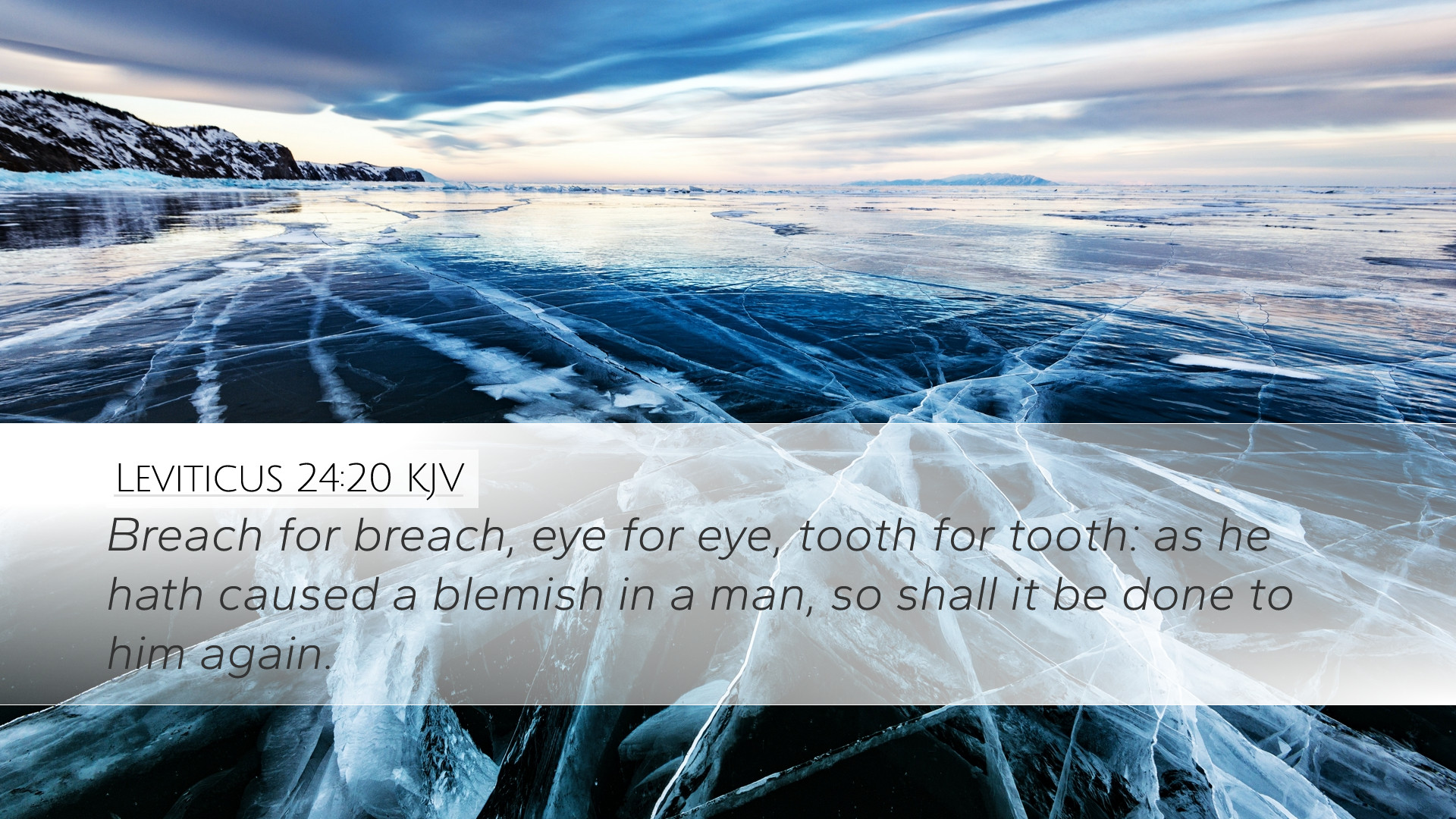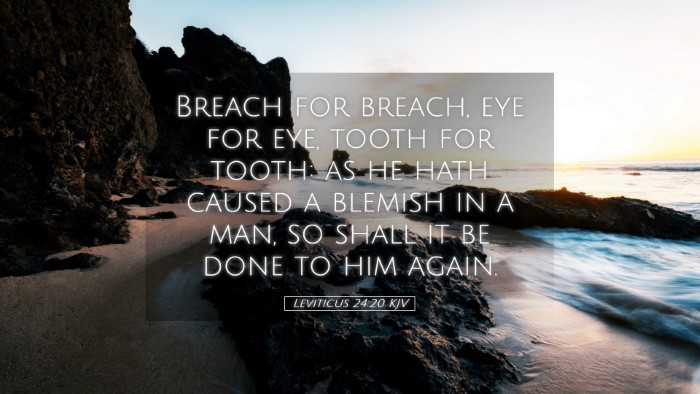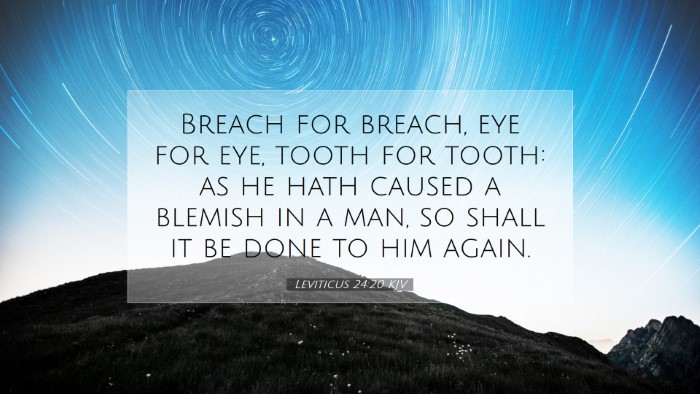Commentary on Leviticus 24:20
Verse: "Breach for breach, eye for eye, tooth for tooth: as he hath caused a blemish in a man, so shall it be done to him again."
Introduction
This verse forms a crucial part of the legal code given to the Israelites and encapsulates the principle known as lex talionis, or the law of retaliation. Understanding this verse requires a careful examination of its historical context, theological implications, and practical applications, as emphasized in the writings of various public domain commentators.
Historical Context
Leviticus is a book primarily concerned with holiness and the establishment of laws to govern the Israelites’ relationship with God and one another. In this specific chapter, the regulations regarding sacred things and just judgments are highlighted.
Matthew Henry's Insights
Matthew Henry emphasizes the need for justice and the proper administration of law among God’s people. He notes that the phrasing of "breach for breach" serves to express the divine intent for proportional justice rather than excessive punishment.
Albert Barnes' Explanation
Albert Barnes elaborates on the principle of equality in punishment. He asserts that this law was designed to prevent personal revenge and to ensure that the punishment fit the crime, thereby promoting social order and accountability. Barnes points out that the phrase indicates that one who causes harm must face equal consequences, which protects the victim’s rights.
Adam Clarke's Theological Perspective
Adam Clarke interprets this verse as a divine safeguard against arbitrary judgments. He stresses the importance of the community adhering to measured responses, promoting a culture of equity and temperance in the face of wrongdoings. Clarke sees the underlying theme as God’s emphasis on fairness, which serves as a model for human interactions.
Theological Implications
The theological dimensions of Leviticus 24:20 extend beyond mere legal stipulation. It reflects God’s nature—His desire for justice, order, and the dignity of human life. The verse prescribes a just response to offenses, underlining that God's community should reflect His righteous character.
Justice and Mercy
While justice is central, there is also an implicit call for mercy which highlights the balance required in handling transgressions. Acknowledging Henry's, Barnes' and Clarke's contributions, we see that while God demands justice, His laws also guide believers toward compassion and grace.
Practical Applications
In light of this verse, practitioners of faith are called to consider how this principle applies within their contexts today. The call to equitable judgment can serve to guide decisions in church leadership, community relations, and personal interactions.
Forgiveness and Restoration
- Limit of Retaliation: The principle teaches that vengeance must not go beyond the measure of the offense, urging believers to reflect on the importance of forgiveness.
- Promoting Justice: It challenges leaders to advocate for justice systems that ensure proportionate consequences, fostering environments where victims can feel safe and valued.
- Community Responsibility: Churches are called to foster discussions on ethics and morality based on this scriptural principle, educating members to navigate conflicts justly.
Conclusion
Leviticus 24:20 serves as a timeless reminder of the need for justice in society while also highlighting the call to reflect God's character in our dealings with each other. The insights garnered from historical commentaries illuminate the balance of justice and mercy and challenge believers to seek out peaceful reconciliations. As students, pastors, and theologians engage with this text, may they strive towards understanding its implications within their communities today.


